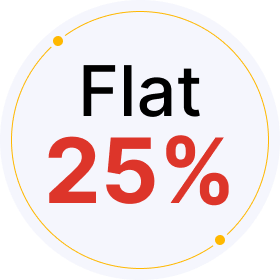
- Blockchain Council
- October 03, 2024
A letter of interest, which people sometimes refer to as a letter of intent, is a formal paper where you show your interest in a job, school program, or other chances. It starts by introducing you, points out your skills and experiences, and explains why you’d be a good fit. This letter is similar to a cover letter but is usually sent when there is no specific job or opportunity advertised.
Format of a Letter of Interest
The format of a letter of interest is important because it needs to be both clear and professional.
Title and Opening
Begin with your name and contact information, then add the date. After that, include the recipient’s name, title, organization, and address. Start with a formal greeting, such as “Dear [Recipient’s Name].” If their name isn’t known, use a general address like “Dear Hiring Manager” or “Dear Admissions Committee.”
Opening Paragraph
Start by briefly introducing yourself and explaining the reason for your letter. Mention your current job or educational level and the area or program you are interested in. For instance, “I recently graduated with a degree in Environmental Science, and I’m writing to show my interest in joining your research team at [Organization/Department].”
Main Content
- Interest and Motivation: Explain what specifically interests you about the organization or program. Talk about projects or values that appeal to you. For example, “I’m particularly impressed by your recent work in sustainable urban planning, and I’m eager to apply my background in ecological data analysis to support these efforts.”
- Skills and Experience: Talk about your skills and experiences that relate to the opportunity. Keep this section brief yet impactful, highlighting key accomplishments that align with the organization’s needs. For instance, “During my internship at GreenCity Initiatives, I led a project that reduced energy use in city parks by 15%. This experience has given me strong project management and analytical skills.”
- Goals and Contributions: Describe what you aim to accomplish and how you will contribute. Show how your objectives align with the organization’s mission. For example, “I am looking forward to bringing my expertise in data-driven environmental research to your team. I’m especially interested in finding innovative solutions to urban pollution.”
Closing Section
Conclude by reiterating your enthusiasm and indicating that you’re eager to talk more about your application. Thank the recipient for taking the time to consider your request. For example, “I would appreciate the chance to talk about how my background in environmental science and passion for sustainable development can contribute to your projects. Thank you for taking the time to review my letter.”
Formal Closing
Include a formal closing like “Sincerely” or “Best regards,” and then write your name. If it’s a printed letter, include your signature; for emails, your typed name is fine.
Examples of Different Letters of Interest
Here are a few situations where you might use different styles of letters of interest:
For Career Growth
If you are looking for a promotion or a new role within the same company, emphasize your internal knowledge and contributions. For example, a senior analyst might show interest in a managerial role by highlighting their understanding of company processes and strategic goals.
For Residency Programs
Medical professionals expressing interest in a residency program should mention specific parts of the institution’s offerings and related experiences to strengthen their application.
For Continued Interest
If you are on a waitlist for a program or position, a letter of continued interest can reaffirm your dedication. It’s also a chance to update the organization on any new achievements since your last communication.
Tips for Writing a Strong Letter of Interest
- Tailor Your Letter: Whenever you can, direct your letter to a specific individual. Steer clear of generic greetings like “To Whom It May Concern.”
- Learn About the Organization: Show that you have researched the organization by mentioning their recent projects, values, or achievements that align with your career goals.
- Highlight Relevant Skills: Focus on the skills and experiences that are most relevant to the opportunity. If possible, use numbers to show your impact, such as by noting specific results or improvements you’ve achieved in previous roles.
- Keep It Short: You want to provide enough information to interest the reader but keep it brief. Aim for a letter no longer than one page.
Sample Letter of Interest for a Job
Alex Brown
123 Maple Street, City, State 12345
[email protected] | (123) 456-7890
[Date]
Ms. Julia Smith
Human Resources Manager
ABC Corporation
456 Elm Avenue, City, State 67890
Dear Ms. Smith,
I am writing to express my interest in potential opportunities at ABC Corporation. With a background in marketing and managing digital campaigns, I am enthusiastic about the chance to be part of your forward-thinking team. I have always admired ABC Corporation’s focus on creative, data-informed strategies, and I am eager to apply my skills in content creation and SEO to help achieve your business objectives.
At XYZ Marketing, I oversaw a digital campaign that increased client engagement by 32%. I am confident my analytical abilities and proactive approach would be valuable at ABC Corporation. I am particularly interested in exploring roles within your marketing team and would appreciate the opportunity to discuss potential openings.
Thank you for considering my letter. I look forward to discussing how I can contribute to the success of ABC Corporation.
Sincerely,
Alex Brown
Conclusion
A well-written letter of interest can help you access opportunities, even if they are not advertised. Whether you are seeking a job, applying for a program, or exploring volunteer options, personalizing your letter and emphasizing relevant experiences can help you stand out. Keep the structure professional, be clear about your intentions, and review your letter carefully before sending it.


































































 Guides
Guides News
News Blockchain
Blockchain Cryptocurrency
& Digital Assets
Cryptocurrency
& Digital Assets Web3
Web3 Metaverse & NFTs
Metaverse & NFTs
